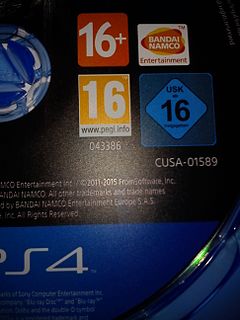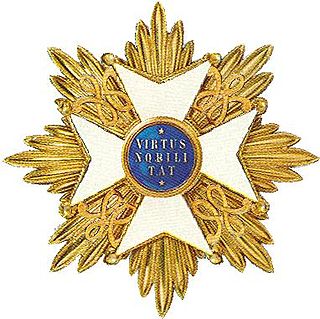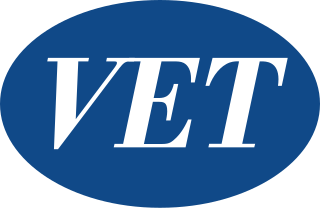A motion picture content rating system is an organization designated to classify films based on their suitability for audiences due to their treatment of issues such as sex, violence, or substance abuse; their use of profanity; or other matters typically deemed unsuitable for children or adolescents. Most countries have some form of rating system that issues determinations variously known as certifications, classifications, certificates, or ratings. Age recommendations, of either an advisory or restrictive capacity, are often applied in lieu of censorship; in some jurisdictions movie theaters may have a legal obligation to enforce restrictive ratings.
The Dutch public broadcasting system is a group of organisations that are responsible for public service television and radio broadcasting in the Netherlands. It is composed of the Nederlandse Publieke Omroep (NPO) foundation, which acts as its governing body, and a number of public broadcasters. The Dutch Media Act 2008 regulates how air time is divided and puts the administration of the public broadcasting system in the hands of the NPO Board of Directors.

The Royal Netherlands Academy of Arts and Sciences is an organization dedicated to the advancement of science and literature in the Netherlands. The academy is housed in the Trippenhuis in Amsterdam.

The Dutch Language Union is an international regulatory institution that governs issues regarding the Dutch language. It is best known for its spelling reforms which are promulgated by member states, grammar books, the Green Booklet and its support of Dutch language courses and studies worldwide. It was founded on a treaty concluded between the Netherlands and Belgium on 9 September 1980. Suriname has been an associate member of the Taalunie since 2004.

The NIOD Institute for War, Holocaust and Genocide Studies is an organisation in the Netherlands which maintains archives and carries out historical studies into the Second World War, the Holocaust and other genocides around the world, past and present. The institute was founded as a merger of the Netherlands Institute for War Documentation and the Center for Holocaust and Genocide Studies (CHGS).
Video game censorship are efforts by an authority to limit access, censor content, or regulate video games or specific video games due to the nature of their content. Some countries will do this to protect younger audiences from inappropriate content using rating systems such as the ERSB rating system. Others will do this to censor any negative outlook on a nation's government.

PEGI or Pan-European Game Information is a European video game content rating system established to help European consumers make informed decisions when buying video games or apps through the use of age recommendations and content descriptors. It was developed by the Interactive Software Federation of Europe (ISFE) and came into use in April 2003, replacing many national age rating systems with a single European system. The PEGI system is now used in 41 countries and is based on a code of conduct, a set of rules to which every publisher using the PEGI system is contractually committed. PEGI self-regulation is composed by five age categories and nine content descriptors that advise the suitability of a game for a certain age range based on the game's content. The age rating is not intended to indicate the difficulty of the game or the skill required to play it.
The Videogame Rating Council (V.R.C.) was introduced by Sega of America in 1993 to rate all video games that were released for sale in the United States and Canada on the Sega Master System, Genesis, Game Gear, Sega CD, and Pico. The rating had to be clearly displayed on the front of the box, but their appearance in advertisements for the video game was strictly optional. It was later supplanted by the industry-wide Entertainment Software Rating Board.
A content rating rates the suitability of TV broadcasts, movies, comic books, or video games to its audience. A content rating usually places a media source into one of a number of different categories, to show which age group is suitable to view media and entertainment. The individual categories include the stated age groups within the category, along with all ages greater than the ages of that category.
The Recreational Software Advisory Council (RSAC) was an independent, non-profit organization founded in the U.S. in 1994 by the Software Publishers Association as well as six other industry leaders in response to video game controversy and threats of government regulation.

The Netherlands Institute of International Relations Clingendael or Clingendael Institute is a Dutch think tank and academy on international relations. Based in Wassenaar on the municipal border with The Hague, the institute also publishes Clingendael Magazine 'Spectator', an online monthly on international politics. As of 2012, the institute is organised into two departments: Clingendael Research and Clingendael Academy.

Rijksdienst voor het Cultureel Erfgoed often abbreviated as Cultureel Erfgoed, is a Dutch heritage organisation working for the protection and conservation of National Heritage Sites. It is located in Amersfoort, province of Utrecht.

A video game content rating system is a system used for the classification of video games based on suitability for target audiences. Most of these systems are associated with and/or sponsored by a government, and are sometimes part of the local motion picture rating system. The utility of such ratings has been called into question by studies that publish findings such as 90% of teenagers claim that their parents "never" check the ratings before allowing them to rent or buy video games, and as such, calls have been made to "fix" the existing rating systems. Video game content rating systems can be used as the basis for laws that cover the sales of video games to minors, such as in Australia. Rating checking and approval is part of the game localization when they are being prepared for their distribution in other countries or locales. These rating systems have also been used to voluntarily restrict sales of certain video games by stores, such as the German retailer Galeria Kaufhof's removal of all video games rated 18+ by the USK following the Winnenden school shooting.

In the Dutch honours system, most orders are the responsibility of ministers of the Netherlands Government. The house orders, however, are awarded at the discretion of the Dutch monarch alone.

The Netherlands Institute for Sound and Vision is the cultural archive and a museum located in Hilversum. The Institute for Sound and Vision collects, looks after, and provides access to over 70% of the Dutch audio-visual heritage. In total, the collection of more than 750,000 hours of [television, radio, music and film that began in 1898 and continues to grow daily, makes Sound and Vision one of the largest audiovisual [archive]s in Europe. It was founded in 1997 as the Netherlands Audiovisual Archive, and adopted its current name in 2002.
The Netherlands' mainstream video games market, not taking into consideration the serious and casual games, is the sixth largest in Europe. In 2008, the Dutch market took up 3.95% of the entire European market in total sales and 4.19% in software sales.

The Netherlands Space Office (NSO) is the space agency of the Netherlands.

The Netherlands Media Art Institute (NIMk) was an international institution based in Amsterdam focusing on the presentation, research and collection of Media Art.

The Finnish Board of Film Classification was an official institution of the Finnish Ministry of Education. From 1946 until the end of year 2011, the VET/SFB was responsible for inspecting and rating the content of movies and video games. In the beginning of 2012, the VET/SFB was dissolved and its functions were transferred to the Finnish Centre for Media Education and Audiovisual Media, likewise operating under the Ministry of Education.

The Association for UK Interactive Entertainment (Ukie) is a non-profit trade association for the video game industry in the United Kingdom (UK). Ukie was originally founded as the European Leisure Software Publishers Association (ELSPA), and then later Entertainment and Leisure Software Publishers Association (ELSPA), before changing to Ukie in 2010.













